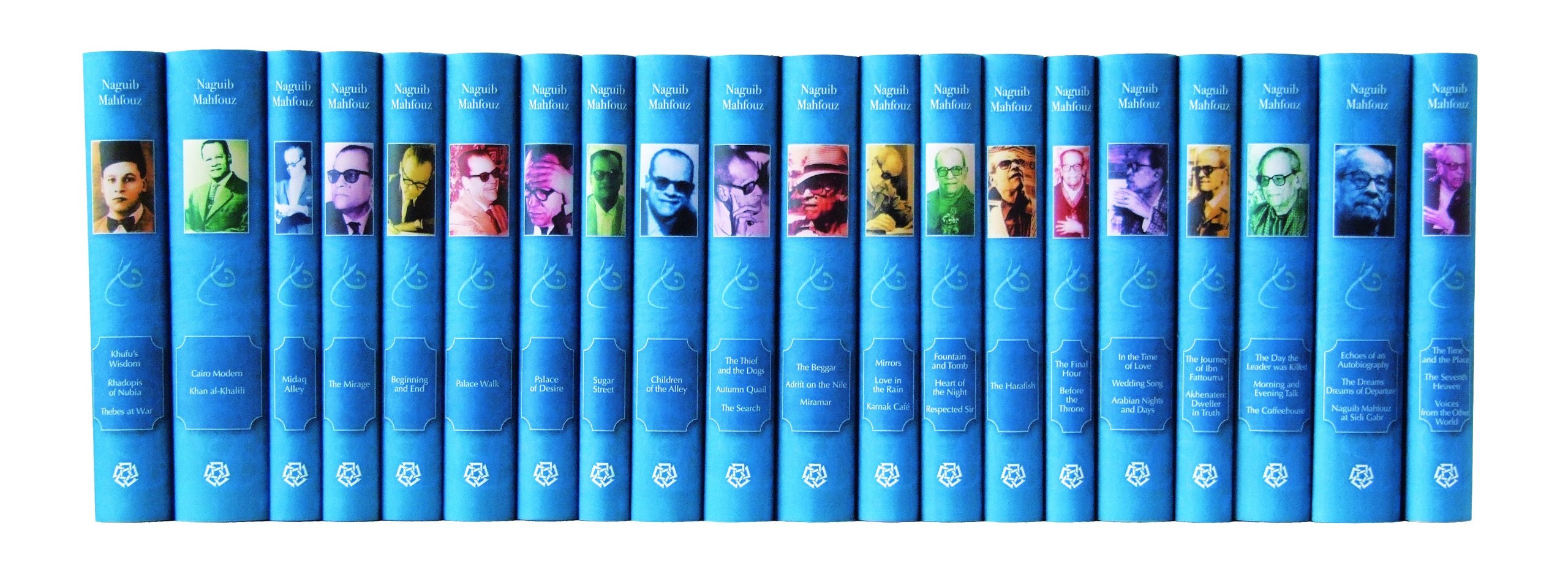Egyptian novelist Naguib Mahfouz received the Nobel Prize for Literature in 1988. He was the author of 40 novels, 350 short stories, and five plays. When I was in Palestine in 2003, I would read his Cairo Trilogy at night. Much later, when we were reading Arab Writers in Translation during and after the Arab Spring, we read his short novel, Karnak Café.
An interesting introduction to Mahfouz can be found in Mohamed Salmawy’s collection, Naguib Mahfouz at Sidi Gaber: Reflections of a Nobel Laureate, 1994-2001 (American University in Cairo Press, 2004). I recently completed a class during which we discussed the relationships among reading, remembering, and writing. One old-fashioned practice is keeping a commonplace book of significant excepts from one’s reading. The following passages from Salmawy and Mahfouz’s exchanges now make their way into my commonplace book, to serve as reminder, inspiration, and goad.
____________________
I have read voraciously throughout my life. Every time I was interested in a subject – and my interests were always diverse – I would read everything I could lay my hands on, however remotely related. I would go to the National Library to read the classics, and regularly frequented the bookstores that sold works in modern literature. I read novels, of course, but also history, philosophy, politics, science…. Human curiosity is limitless, but one life is nowhere near enough to satisfy it. 12
“Writing” – expressing my ideas and thoughts – is, for me, the moment when the ink begins to flow through the pen and onto the paper. I know of no other way. 20
The reason I stayed [in Egypt] is that I liked writing more than I liked what it seemed apt to give rise to: money and fame. If these things came along, it would be wonderful. But I functioned mostly as if they had already come, because my true happiness and joy were in the writing itself. 34
When I began, it was extremely difficult to get a book published, so much so that whenever I finished a novel I would put the manuscript in some drawer, sometimes for years, before it found a publisher and the time came for it to see the light. 47
For me, the café is a place where I used to meet my closest friends. Later, as a writer, the café became a place to meet other writers and intellectuals. But I also go to the café to be alone, to watch passersby and meditate. 53
So far as I am concerned, a novel is still an idea, and a plot, and characters. 59
As he takes up his pen, a writer must think only of the work at hand, of himself, and possibly of another reader, identical to himself. Once that much is accomplished, he can only wait and hope for the best. 60
My first concept of the novel was formed by the Qur’an. 66
Then writers must strive not to let a day pass without at least making a stab at producing something new…. At any rate, a writer must sit down to write every day, to pick up his pen and try to write something – anything – on a piece of paper. 68
It began a long time ago, this habit of keeping a notebook in which to jot down ideas as they came to me before they could be made into novels. 78
I see writing as nine parts discipline and one part talent —the old inspiration and perspiration story. It was always very important for me to write everyday —a question of not losing the habit. 79
It is necessary to spend some time every day immersed in one’s craft. Reading words written by others is often just as important as writing itself. Then again, I also set aside time for friends — that is something to which I have always attached a great deal of importance. 79
Part of the creative process is carried out by the unconscious mind, of course; the writer may not be aware of it at all. The critic did not necessarily find the material for his interpretation in black and white on the page; he read it into the story, and sought to analyze my character or convictions on that basis. 82
When Gabriel Garcia Marquez’s novels were described in terms of magical realism, I immediately thought how appropriate that was to the Thousand and One Nights. That is where we must look to find the beginnings of magic realism. These stories combine reality and fantasy, truth and invention as no other narrative had done before. 88
It is not necessary to be inspired or moved to write, in the usual sense. An experienced writer has a deep reserve of emotions, events, and characters on which he can always draw. Maybe, then, it is up to him to start anything at any time. 95
